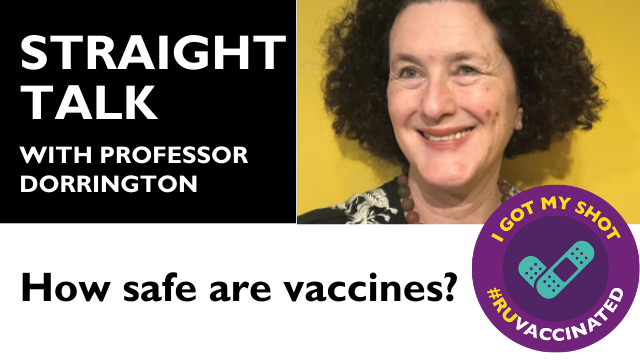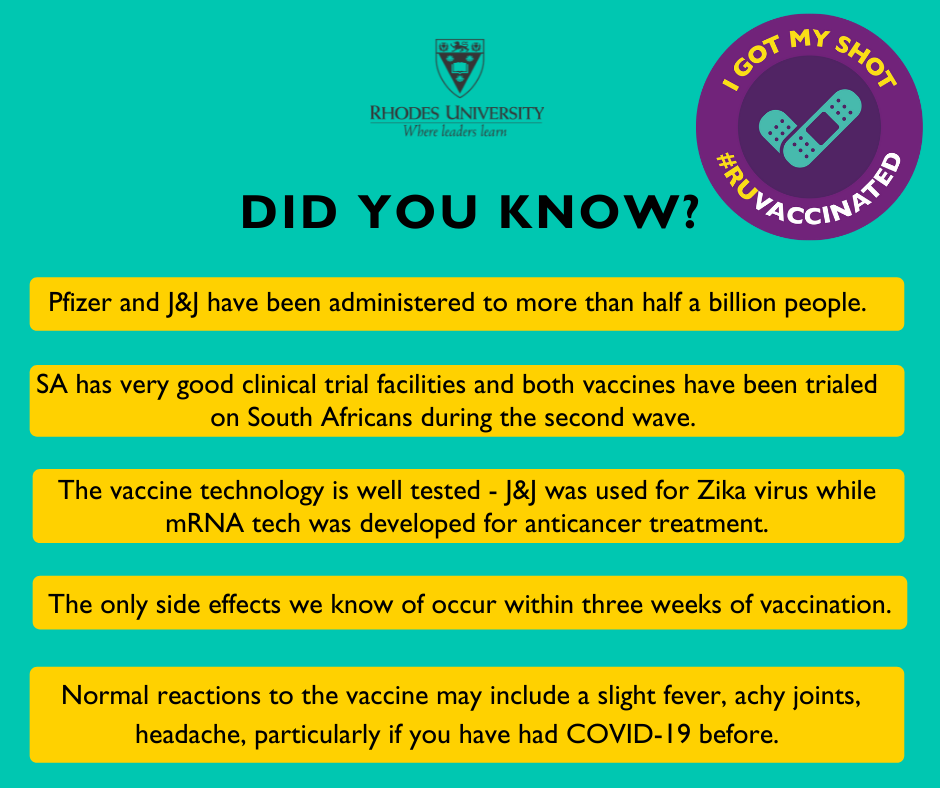
Vaccines are ultimately the only way to ensure that we beat COVID-19, yet vaccine hesitancy remains a threat to attaining herd immunity and protecting the whole community. In this series, Virologist at Rhodes University and member of the Provincial COVID-19 Expert Panel, Professor Rosemary Dorrington, will address queries, fears, and misinformation that many of our citizens face.
Misconception: “I’ve heard stories of people dying or getting blood clots after having a vaccine – there is no way will I put myself in that kind of danger!”
Prof responds:
You need to look at the clinical evidence. There have been anecdotal stories of people dying from the vaccine, but the evidence does not confirm this. In these anecdotal stories that claim a person died from the vaccine, it is much more likely that they died from underlying reasons than the vaccine itself.. Unless the coroner deems the death to be a direct result of the vaccine, we can not say that the vaccine caused the death.
There is data available publicly from the Department of Health that records the reasons behind deaths, and I am unaware that there are such cases to be found in the records.
To put it into perspective, there is a one in ten million chance that someone will have an allergic reaction (anaphylaxis) to the Pfizer vaccine and all vaccine sites have trained staff and emergency medication to treat this. This is why people must remain at the vaccination site for at least 10 minutes after receiving their jab – in case there is a slight chance that they might experience adverse reactions. Given these precautions, can you see how unlikely it is for someone to die of the vaccine?
As for blood clots, some of the vaccines (AstraZeneca and Johnson & Johnson) were indeed causing blood clots (thrombosis in combination with thrombocytopenia), but these are extremely rare. We are aware of 6 cases of blood clots from a total of more than 200 000 people in the Sisonke trial, none of which were fatal and at least one of which was due to a history of blood clots. So rare, in fact, that you are more likely to get this type of blood clot from being on the contraceptive “pill” than from the vaccine.
Furthermore, there were slightly more blood clot cases with AstraZeneca than Johnson & Johnson, and AstraZeneca was rejected for use in South Africa. According to the Centre for Disease Control (CDC), from 13 July 2021: “A review of all available data at this time shows that the J&J/Janssen COVID-19 Vaccine’s known and potential benefits outweigh its known and potential risks.”
However, it is still a good idea that women below 50 either request an alternative to the Johnson & Johnson. Where this is not possible, they should keep an eye on possible blood clot symptoms, which include: severe headache, abdominal pain, leg swelling, or visible blood spots around the site of the injection around 5 to 20 days post-vaccination. If you develop any of these symptoms, please seek medical attention immediately.
A final point to keep in mind is that the long-term physiological damage caused by COVID-19 infections is much more severe than the rare side effects of the vaccine. More than 20% of COVID-19 infections cause blood clots that cause up to 40% of COVID-19-related deaths. Please look out for my upcoming Straight talk with Prof Dorrington, where I discuss the dangers of long-COVID.
Please don’t think that you are better off getting COVID-19 than risking the very rare side effects of the vaccine. The vaccine could literally save your life.
If you have your own burning question, you can email it to cvrtt@ru.ac.za and it might be featured as part of this series.


